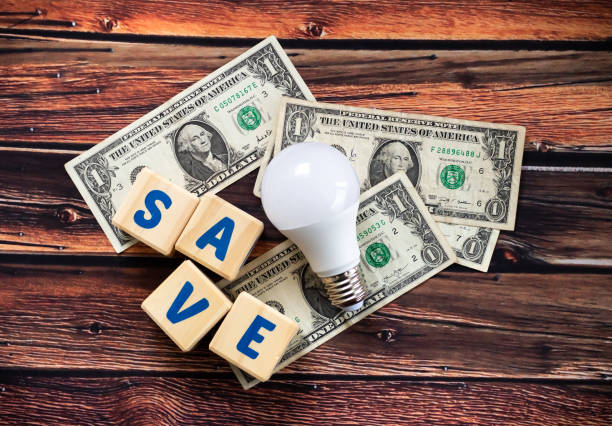How Energy-Efficient Home Improvements Can Reduce Your Energy Bills and Taxes

Energy efficiency isn’t just a buzzword; it’s a smart financial strategy that benefits both homeowners and the environment. By making energy-efficient home improvements, you can significantly reduce your energy bills and qualify for valuable tax credits. In this blog, we’ll explore how energy-efficient upgrades can save you money, the specific tax credits available, and how to claim them. Let’s dive into the world of energy efficiency and discover how these improvements can benefit your home and wallet.
The Importance of Energy-Efficient Home Improvements
Home energy efficiency is crucial for several reasons:
- Reduced Energy Bills: Energy-efficient upgrades can lower your energy consumption, leading to substantial savings on your utility bills.
- Environmental Impact: Reducing energy usage helps decrease greenhouse gas emissions, contributing to a healthier planet.
- Increased Home Value: Energy-efficient homes often have higher resale values and are more attractive to potential buyers.
- Comfort and Health: Upgrading your home’s energy systems can improve indoor air quality and overall comfort.
Tax Credits for Energy-Efficient Improvements
The IRS offers two significant tax credits to encourage homeowners to invest in energy-efficient improvements: the Energy Efficient Home Improvement Credit and the Residential Clean Energy Credit.
1. Energy Efficient Home Improvement Credit
This credit is designed for homeowners who make energy-efficient improvements, additions, or renovations to an existing home. Unfortunately, it does not apply to newly constructed homes. Eligible expenses include:
- Exterior Doors, Windows, and Skylights: Upgrading to energy-efficient models can reduce drafts and improve insulation.
- Insulation Materials: Proper insulation helps maintain indoor temperatures, reducing the need for heating and cooling.
- Central Air Conditioners, Water Heaters, Furnaces, Boilers, and Heat Pumps: Modern, energy-efficient systems consume less energy, leading to lower utility bills.
- Biomass Stoves and Boilers: These eco-friendly heating options have their own separate annual credit limit.
- Home Energy Audits: Professional evaluations can identify areas for improvement and potential savings.
Credit Amount:
- 2023 through 2032: 30% of the total improvement expenses, up to a maximum of $1,200 annually.
- Biomass Stoves and Boilers: Up to $2,000 annually with no lifetime limit.
2. Residential Clean Energy Credit
This credit applies to both existing homes and newly constructed homes. It covers the installation of renewable energy systems, including:
- Solar, Wind, and Geothermal Power Generation Equipment: Harness renewable energy to power your home.
- Solar Water Heaters: Use solar energy to heat your water efficiently.
- Fuel Cells and Battery Storage: Innovative energy storage solutions that complement renewable energy systems.
Credit Amount:
- 2022 – 2032: 30% of the total improvement expenses, with no annual maximum or lifetime limit.
- 2033: 26%, no annual maximum or lifetime limit.
- 2034: 22%, no annual maximum or lifetime limit.
Who Can Claim These Credits?
Homeowners who make qualifying energy-efficient improvements to their principal or, in some cases, secondary residences can claim these credits. Renters may also be eligible for specific costs, though landlords cannot claim these credits for improvements made to rental properties. For detailed eligibility criteria, refer to the instructions for IRS Form 5695.
How to Claim the Credits
To claim the Energy Efficient Home Improvement Credit or the Residential Clean Energy Credit, taxpayers should:
- Complete Form 5695: This form, titled “Residential Energy Credits,” is used to calculate and claim your credits.
- File with Your Tax Return: Attach Form 5695 to your annual tax return when you file.
Practical Tips for Homeowners
To maximize your savings and ensure you qualify for the available credits, consider the following tips:
- Plan Your Upgrades: Prioritize improvements that offer the highest energy savings and return on investment.
- Hire Qualified Professionals: Ensure that installations and upgrades are performed by licensed and experienced contractors.
- Keep Records: Maintain detailed records of all expenses and improvements, including receipts and contractor invoices.
- Stay Informed: Tax laws and credits can change, so stay updated on the latest information from the IRS.
Beware of Scams
As energy-efficient upgrades become more popular, so do scams. Be cautious of companies that make exaggerated claims about the benefits of their products or services. Always verify the credentials of contractors and consult multiple sources before making decisions.
Real-Life Success Stories
To illustrate the impact of energy-efficient home improvements, let’s look at a few real-life success stories:
- The Smith Family: By replacing their old windows with energy-efficient models and installing a new central air conditioning system, the Smiths reduced their annual energy bills by 20%. They also claimed the Energy Efficient Home Improvement Credit, which covered a significant portion of their costs.
- Green Solutions, Inc.: A homeowner in California installed a solar power system and battery storage, allowing them to generate and store their own energy. This not only reduced their reliance on the grid but also qualified them for the Residential Clean Energy Credit, significantly offsetting the installation costs.
- Eco-Friendly Upgrade: After a professional home energy audit, the Johnsons upgraded their insulation and installed a biomass stove. These improvements made their home more comfortable in winter and summer, and they claimed the maximum allowable credits for both upgrades.
Conclusion
Energy-efficient home improvements are a win-win for homeowners, offering both immediate savings on energy bills and long-term financial benefits through tax credits. By understanding the available credits and making strategic upgrades, you can enhance the comfort and value of your home while contributing to a sustainable future.
Don’t miss out on these valuable opportunities. Start planning your energy-efficient home improvements today, and enjoy the benefits of lower energy bills and generous tax credits. For more information, consult the IRS guidelines or speak with a tax professional.
References:
- IRS Form 5695 Instructions
- IRS Tax Tips and Guidance
By investing in energy-efficient home improvements, you not only save money but also contribute to a greener planet. Embrace the change and reap the rewards today!



